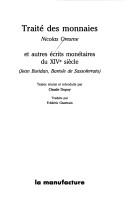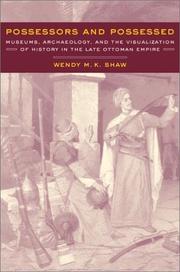| Listing 1 - 10 of 16 | << page >> |
Sort by
|
Periodical
Abstract | Keywords | Export | Availability | Bookmark
 Loading...
Loading...Choose an application
- Reference Manager
- EndNote
- RefWorks (Direct export to RefWorks)
Medical economics --- Economics, Medical. --- Medical economics. --- Europe. --- Medical Economics --- Medicine --- Economics, Medical --- Health --- Health economics --- Hygiene --- Medical care --- economics --- Economic aspects --- Council of Europe countries --- Northern Europe --- Southern Europe --- Western Europe --- Eastern Hemisphere --- Eurasia --- Europa --- Europa. --- Économie de la santé

ISBN: 1845425170 Year: 2005 Publisher: Cheltenham, UK ; Northampton, MA : Edward Elgar,
Abstract | Keywords | Export | Availability | Bookmark
 Loading...
Loading...Choose an application
- Reference Manager
- EndNote
- RefWorks (Direct export to RefWorks)
European Union --- Congresses. --- Europe --- European Union countries --- Europe, Southern --- Europe, Eastern --- Pays de l'Union européenne --- Europe méridionale --- Europe de l'Est --- Economic integration --- Economic policy --- Economic conditions --- Intégration économique --- Congrès --- Politique économique --- Conditions économiques --- 331.32 --- 334.153.0 --- AL / Albania - Albanie --- BA / Bosnia & Herzegovina - Bosnie & Herzegovine --- BG / Bulgaria - Bulgarije - Bulgarie --- EEU / Central & Eastern Europe --- HR / Croatia - Kroatië - Croatie --- MK / Macedonia - Macedonië - Macédoine --- RO / Romania - Roemenië - Roumanie --- YU / Yugoslavia - Yougoslavie --- -European Union countries --- -332.456609496 --- Structuur van de economie. --- Betrekkingen tussen de Europese Gemeenschappen en de geassocieerde of derde landen: algemeenheden. --- -Economic policy --- -Europe, Eastern --- -Europe, Southern --- -Southern Europe --- East Europe --- Eastern Europe --- -Economic conditions --- -Conferences - Meetings --- Pays de l'Union européenne --- Europe méridionale --- Intégration économique --- Congrès --- Politique économique --- Conditions économiques --- 332.456609496 --- Structuur van de economie --- Betrekkingen tussen de Europese Gemeenschappen en de geassocieerde of derde landen: algemeenheden --- E.U. --- Southern Europe --- Conferences - Meetings

ISBN: 2737700310 9782737700316 Year: 1989 Volume: *5 Publisher: Lyon La manufacture
Abstract | Keywords | Export | Availability | Bookmark
 Loading...
Loading...Choose an application
- Reference Manager
- EndNote
- RefWorks (Direct export to RefWorks)
Les thèses modernistes développées par Nicole d'Oresme au XIVe siècle prennent position contre l'ordre féodal et pour l'ordre marchand. Ses écrits jettent les bases du réalisme monétaire qui s'épanouira durant les siècles suivants.
History of Southern Europe --- History of France --- anno 1300-1399 --- Money --- Monnaie --- Early works to 1800 --- Ouvrages avant 1800 --- 091:737 --- -AA / International- internationaal --- 331.152 --- 333.400 --- Currency --- Monetary question --- Money, Primitive --- Specie --- Standard of value --- Exchange --- Finance --- Value --- Banks and banking --- Coinage --- Currency question --- Gold --- Silver --- Silver question --- Wealth --- Handschriftenkunde. Handschriftencatalogi-:-Numismatiek. Muntkunde --- Geldwezen in de middeleeuwen. --- Geldwezen: algemeenheden. --- 091:737 Handschriftenkunde. Handschriftencatalogi-:-Numismatiek. Muntkunde --- AA / International- internationaal --- Geldwezen in de middeleeuwen --- Geldwezen: algemeenheden --- Money - Early works to 1800
Book
ISBN: 178714948X 178714495X 9781787144958 1787144968 9781787144965 Year: 2017 Publisher: Bingley : Emerald Publishing,
Abstract | Keywords | Export | Availability | Bookmark
 Loading...
Loading...Choose an application
- Reference Manager
- EndNote
- RefWorks (Direct export to RefWorks)
The EMU debt crisis that emerged in 2010 has identified a group of Southern countries, especially Greece, Portugal, Spain and Italy, as low performers exhibiting several seriousmacroeconomic imbalances, and it has also highlighted that EU integration experiencedby Eastern European countries (especially the latter-comers to EU) was not accompanied by a rapid process of real convergence. Since then, the researchabout the effects of peripherality have regained a renewed interest toultimately ground better regional policy recommendations aimed at achieving asustained reduction of income per capita disparities across EU regions. In this new work, Pascariu and Duarte, along with an international group ofacclaimed scholars, delve into key challenges currently facing the EuropeanUnion. They investigate this central question: does the domestic market systemlead to the development of a center-periphery model, by highlight gaps, or doesit support the convergence process? Analyzing the effects of peripheralityacross the EU regions, a two-fold approach is used to deliver policyrecommendations grounded in economic theory, and of interest to other countriesand regions facing a process of integration.
Debt --- Europe --- Economic conditions. --- Indebtedness --- Finance --- European federation --- Financial crises --- Political aspects --- European Union countries --- Europe, Southern --- Europe, Eastern --- Politics and government. --- Economic integration. --- E-books --- Crashes, Financial --- Crises, Financial --- Financial crashes --- Financial panics --- Panics (Finance) --- Stock exchange crashes --- Stock market panics --- Crises --- Federation of Europe --- Pan Europa movement --- Paneuropean federation --- United States of Europe (Proposed) --- Federal government --- Regionalism (International organization) --- Southern Europe --- Business & Economics --- International economics. --- Economics --- General. --- European Union --- E.U.
Periodical
Abstract | Keywords | Export | Availability | Bookmark
 Loading...
Loading...Choose an application
- Reference Manager
- EndNote
- RefWorks (Direct export to RefWorks)
The European Journal of Health Economics is a highly scientific and at the same time practical oriented journal considering the requirements of various health care systems in Europe. The international scientific board of opinion leaders guarantee high-quality, peer reviewed publications as well as articles for pragmatic approaches in the field of Health Economics.
Hygiene. Public health. Protection --- Economics --- Economics, Medical --- Delivery of Health Care --- Drug Industry --- Medical economics --- Medical care, Cost of --- Economie de la santé --- Soins médicaux --- economics --- Periodicals --- Périodiques --- Coût --- Economics, Medical. --- Économie de la santé --- Medical economics. --- economics. --- Europe. --- Business, Economy and Management --- Health Sciences --- General and Others --- Medical Education, Training & Research --- Public health --- Gesundheitsökonomie --- Medical Economics --- Medicine --- Gesundheitsökonomik --- Gesundheitswesen --- Medizinökonomie --- Medizinökonomik --- Medizinische Ökonomie --- Medizinische Ökonomik --- Health Economics --- Health --- Health economics --- Hygiene --- Medical care --- Wirtschaftstheorie --- Economic aspects --- Northern Europe --- Southern Europe --- Western Europe --- Council of Europe countries --- Eastern Hemisphere --- Eurasia
Book
ISBN: 0801461073 080146059X 9780801460593 9780801449574 080144957X Year: 2011 Publisher: Ithaca, NY
Abstract | Keywords | Export | Availability | Bookmark
 Loading...
Loading...Choose an application
- Reference Manager
- EndNote
- RefWorks (Direct export to RefWorks)
Since the first fertilization of a human egg in the laboratory in 1968, scientific and technological breakthroughs have raised ethical dilemmas and generated policy controversies on both sides of the Atlantic. Embryo, stem cell, and cloning research have provoked impassioned political debate about their religious, moral, legal, and practical implications. National governments make rules that govern the creation, destruction, and use of embryos in the laboratory-but they do so in profoundly different ways.In Embryo Politics, Thomas Banchoff provides a comprehensive overview of political struggles aboutembryo research during four decades in four countries-the United States, the United Kingdom, Germany, and France. Banchoff's book, the first of its kind, demonstrates the impact of particular national histories and institutions on very different patterns of national governance. Over time, he argues, partisan debate and religious-secular polarization have come to overshadow ethical reflection and political deliberation on the moral status of the embryo and the promise of biomedical research. Only by recovering a robust and public ethical debate will we be able to govern revolutionary life-science technologies effectively and responsibly into the future.
Human embryo --- Embryo, Human --- Research --- Moral and ethical aspects --- Political aspects --- Politics --- Embryo Research --- Embryology, Human --- ethics --- Embryo Cell Research --- Embryo Experimentation --- Human Embryo Research --- Cell Research, Embryo --- Embryo Experimentations --- Embryo Research, Human --- Experimentation, Embryo --- Experimentations, Embryo --- Research, Embryo --- Research, Embryo Cell --- Research, Human Embryo --- Embryo, Mammalian --- Human Experimentation --- Ethics, Research --- Stem Cell Research --- Conservatism --- Decentralization --- Liberalism --- Political Factors --- Voting --- Political Activity --- Activities, Political --- Activity, Political --- Factor, Political --- Factors, Political --- Political Activities --- Political Factor --- Dissent and Disputes --- United States. --- Europe. --- E-books --- Northern Europe --- Southern Europe --- Western Europe --- Ethics
Book
ISBN: 0792331222 9401044317 940110994X Year: 1994 Publisher: Dordrecht Kluwer Academic Publishers
Abstract | Keywords | Export | Availability | Bookmark
 Loading...
Loading...Choose an application
- Reference Manager
- EndNote
- RefWorks (Direct export to RefWorks)
Europe --- Europe, Eastern --- Europe, Southern --- Foreign economic relations --- AA / International- internationaal --- EEU / Central & Eastern Europe --- LDC / Developping Countries - Pays En Développement --- 334.153.0 --- 334.153.1 --- 334.153.2 --- NBB congres --- Betrekkingen tussen de Europese Gemeenschappen en de geassocieerde of derde landen: algemeenheden. --- Handel, douanetarief en handelsakkoorden in de Europese Gemeenschappen. --- Ontwikkelingssamenwerking. Europees Ontwikkelingsfonds. --- Conferences - Meetings --- Betrekkingen tussen de Europese Gemeenschappen en de geassocieerde of derde landen: algemeenheden --- Handel, douanetarief en handelsakkoorden in de Europese Gemeenschappen --- Ontwikkelingssamenwerking. Europees Ontwikkelingsfonds --- Council of Europe countries --- Eastern Hemisphere --- Eurasia --- Southern Europe --- East Europe --- Eastern Europe
Book
ISBN: 9783839428429 3839428424 Year: 2015 Publisher: Bielefeld transcript Verlag
Abstract | Keywords | Export | Availability | Bookmark
 Loading...
Loading...Choose an application
- Reference Manager
- EndNote
- RefWorks (Direct export to RefWorks)
The ongoing crisis in Europe has dramatic impact on the life in many Southern European cities: Unemployment, social deprivation, poverty, political instability, severe cuts in the welfare state budgets and a wide spread feeling of despair have eroded much of the social foundation of the cities. In this book, contributors from Spain, Greece, Portugal and Italy provide an insight into the complex interference between the different aspects of the crisis. They show that the recent urban crisis is not purely a result of the budgetary problems of the nation state (»austerity urbanism«) but needs to be seen as multiple contestations. The Crisis of the City is therefore understood as a result of a changing nation state, cultural diversity, challenged urban planning and politics and a globalized economy. »Eine wichtige Bereicherung der stadtsoziologischen Debatte um die europäische Stadt.« Detlef Baum, www.socialnet.de, 21.03.2016 Besprochen in: Portal für Politikwissenschaft, 11.02.2016, Matthias Lemke Stadt und Raum, 1 (2016)
Sociology, Urban --- Urban economics --- Financial crises --- Cities and towns --- City economics --- Economics of cities --- Economics --- Crashes, Financial --- Crises, Financial --- Financial crashes --- Financial panics --- Panics (Finance) --- Stock exchange crashes --- Stock market panics --- Crises --- Urban sociology --- History --- Social aspects --- Economic aspects --- Europe, Southern --- Southern Europe --- Economic conditions --- E-books --- Urban economics. --- European Union countries --- Economic policy. --- Economic history. --- Social aspects. --- History, Economic --- Sociology, Urban. --- Civil Society. --- Crisis. --- Economy. --- Europe. --- Globalization. --- Planning. --- Sociology. --- Transformation. --- Urban Studies. --- City; Crisis; Europe; Planning; Transformation; Sociology; Globalization; Economy; Civil Society; Urban Studies

ISBN: 0520928563 9786612356803 1282356801 1597348244 9780520928565 0585468540 9780585468549 9780520233355 0520233352 9781597348249 6612356804 0520233352 9781282356801 Year: 2003 Publisher: Berkeley, Calif. University of California Press
Abstract | Keywords | Export | Availability | Bookmark
 Loading...
Loading...Choose an application
- Reference Manager
- EndNote
- RefWorks (Direct export to RefWorks)
Possessors and Possessed analyzes how and why museums-characteristically Western institutions-emerged in the late-nineteenth-century Ottoman Empire. Shaw argues that, rather than directly emulating post-Enlightenment museums of Western Europe, Ottoman elites produced categories of collection and modes of display appropriate to framing a new identity for the empire in the modern era. In contrast to late-nineteenth-century Euro-American museums, which utilized organizational schema based on positivist notions of progress to organize exhibits of fine arts, Ottoman museums featured military spoils and antiquities long before they turned to the "Islamic" collections with which they might have been more readily associated. The development of these various modes of collection reflected shifting moments in Ottoman identity production. Shaw shows how Ottoman museums were able to use collection and exhibition as devices with which to weave counter-colonial narratives of identity for the Ottoman Empire. Impressive for both the scope and the depth of its research, Possessors and Possessed lays the groundwork for future inquiries into the development of museums outside of the Euro-American milieu.
Museums --- Public institutions --- Cabinets of curiosities --- Collection management --- History. --- History --- Collection management&delete& --- E-books --- Museology --- History of civilization --- History of Southern Europe --- anno 1800-1899 --- Turkey --- 1874 antiquities law. --- abdlaziz. --- abdlhamid ii. --- abdlhamid. --- antique weapons. --- antiquities. --- archaeology. --- artifacts. --- cameras. --- church of the hagia irene. --- collection management. --- collection. --- colonial narratives. --- conquest. --- display. --- empire. --- history. --- identity. --- imperial armory. --- imperial museum. --- imperialism. --- islam. --- middle east. --- military storehouse. --- military. --- museum administration. --- museum exhibits. --- museums. --- national identity. --- ottoman empire. --- ottoman museums. --- railroads. --- relics. --- spoils of war. --- spolia. --- technology. --- turkey. --- turks. --- war.

ISBN: 128016994X 9786610169948 9264019952 9264099832 Year: 2003 Publisher: Paris : OECD,
Abstract | Keywords | Export | Availability | Bookmark
 Loading...
Loading...Choose an application
- Reference Manager
- EndNote
- RefWorks (Direct export to RefWorks)
Building open government is a challenge shared by all countries. Transparency and accountability in public administration are enhanced by strong public scrutiny based on solid legal provisions for access to information. Investing in consultation and public participation allows governments to tap new sources of policy-relevant ideas, information and resources when making decisions. These efforts, in turn, contribute to building public trust in government, meeting the expectations of civil society, and strengthening civic capacity.
Civil society -- Congresses. --- Europe, Eastern -- Politics and government -- 1989- -- Congresses. --- Europe, Southern -- Politics and government -- Congresses. --- Freedom of information -- Europe -- Congresses. --- Government information -- Europe -- Congresses. --- Transparency in government -- Congresses. --- Transparency in government --- Civil society --- Freedom of information --- Government information --- Law, Politics & Government --- Human Rights --- Information, Government --- Government in the sunshine --- Openness in government --- Sunshine, Government in the --- Transparence in government --- Public records --- Social contract --- Open government (Transparency in government) --- Public administration --- Europe, Eastern --- Europe, Southern --- Politics and government --- Information, Freedom of --- Liberty of information --- Right to know --- Civil rights --- Freedom of speech --- Intellectual freedom --- Telecommunication --- Law and legislation --- Southern Europe --- East Europe --- Eastern Europe --- Transparence (Sciences sociales) --- Société civile --- Liberté d'information --- Information sur l'Etat --- Congresses. --- Congresses --- Congrès --- Europe de l'Est --- Europe méridionale --- Politique et gouvernement --- Transparency (Ethics) in government
| Listing 1 - 10 of 16 | << page >> |
Sort by
|

 Search
Search Feedback
Feedback About UniCat
About UniCat  Help
Help News
News